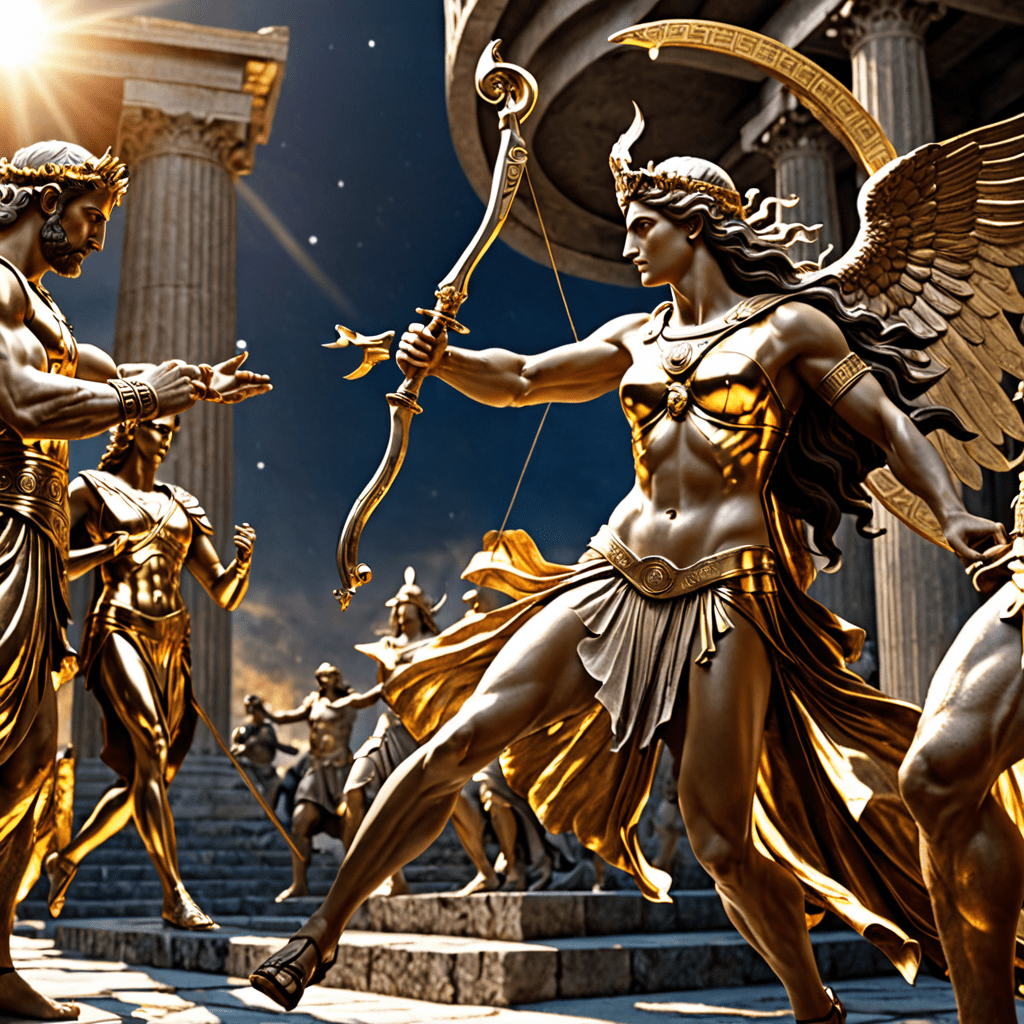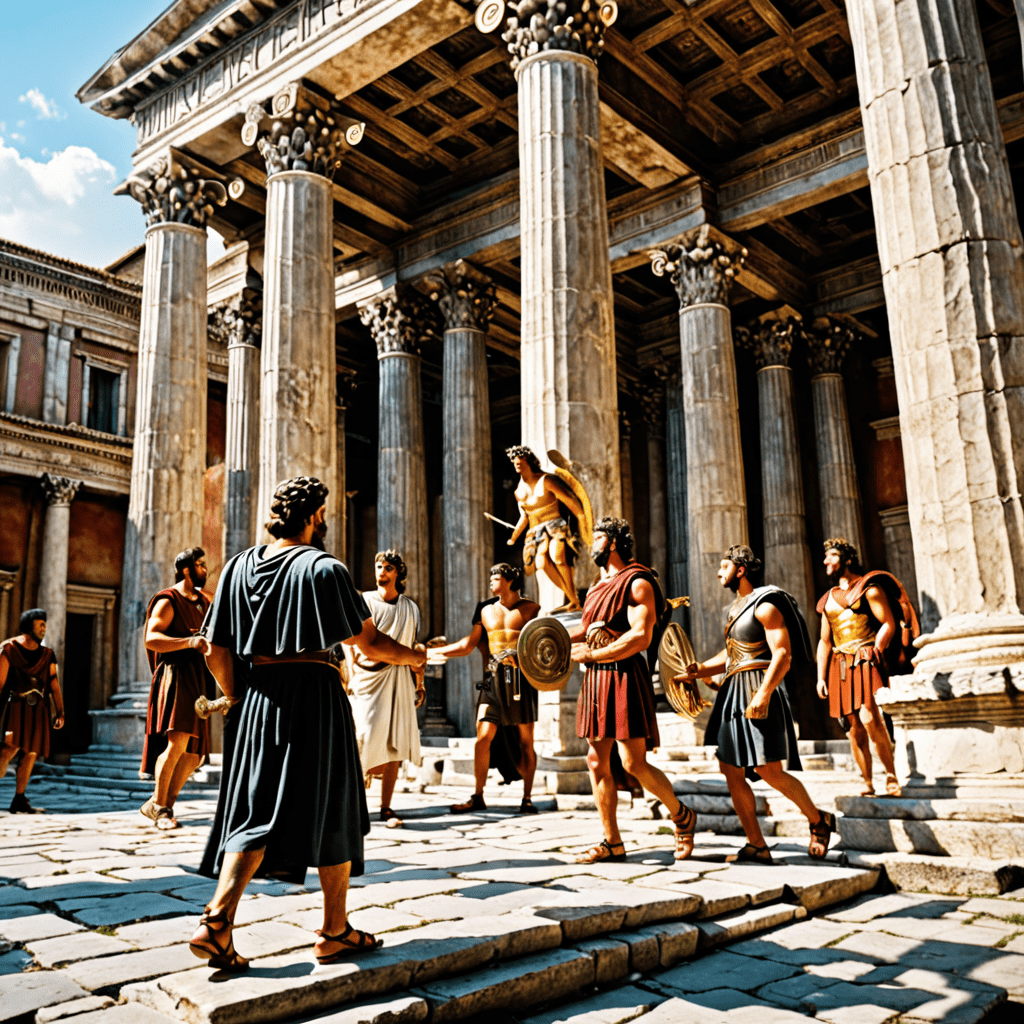The Heart’s Desire: Tales of Passion and Longing in Myths
Introduction: The Universal Theme of Desire in Mythology
Desire is a fundamental aspect of the human experience, transcending cultures and epochs. Throughout history, myths have served as vessels for exploring the themes of passion and longing, illustrating the depths of human emotion. From the ancient tales of Greece to the rich narratives of Eastern traditions, these stories encapsulate the complexities of love, loss, and the pursuit of connection.
Understanding the role of desire in mythology not only enriches our appreciation of these narratives but also offers insights into our own emotional landscapes. Myths provide a mirror to our innermost longings, revealing the timeless nature of human relationships and the universal quest for fulfillment.
The Nature of Desire: Psychological Perspectives
Desire can be understood through various psychological lenses, often viewed as a driving force behind human behavior. Psychologically, desire encompasses a range of emotions and motivations, from basic needs for survival to the profound yearning for love and belonging.
Myths reflect this intrinsic need for connection, often portraying characters who embark on journeys fueled by their desires. The portrayal of desire in mythological stories can be seen as an exploration of:
- The pursuit of unattainable goals.
- The consequences of unfulfilled desires.
- The transformative power of love.
Through these narratives, we can see how the ancient storytellers understood and articulated the complexities of human emotions, making them relevant even in contemporary society.
Greek Myths: Love, Betrayal, and Longing
Greek mythology is replete with tales of love, betrayal, and the yearning that often accompanies desire. One of the most poignant stories is that of Orpheus and Eurydice. Orpheus, a gifted musician, descends into the Underworld to reclaim his beloved Eurydice, who has died unexpectedly. His journey illustrates the lengths to which love can compel a person, as well as the fragility of desire and the pain of loss.
Similarly, the story of Pygmalion and Galatea explores themes of longing and idealization. Pygmalion, a sculptor, falls in love with a statue he has created. His desire leads to a divine intervention, bringing Galatea to life. This tale underscores the complexities of love—how desire can lead to creation but also to obsession and disillusionment.
These myths reveal that desire often intertwines with other emotions, creating a rich tapestry of human experience marked by both joy and sorrow.
Eastern Myths: Yearning and Spiritual Connection
In Eastern mythology, themes of longing often manifest in both spiritual and romantic contexts. The Indian epics, such as the Ramayana and Mahabharata, provide profound insights into the nature of desire.
In the Ramayana, the love between Rama and Sita is central to the narrative. Their separation and Rama’s relentless pursuit to rescue Sita from captivity reflect a deep yearning that transcends physical distance, highlighting devotion and the spiritual dimensions of love.
Similarly, in the Mahabharata, the longing experienced by characters like Draupadi illustrates the complexities of desire within the context of duty and honor. Draupadi’s relationships with the five Pandava brothers represent not just romantic desire but also the longing for justice and recognition.
These stories emphasize that desire is not merely a personal emotion but is often interwoven with larger cultural and spiritual narratives.
Norse Myths: Desire and Destiny
Norse mythology presents desire as a powerful force that frequently intersects with fate. The tale of Freyja, the goddess of love, highlights this interplay. Freyja’s quest to find her lost husband, Óðr, showcases her deep longing and the sacrifices she is willing to make to reunite with him.
This myth reflects the Norse belief that desire can shape one’s destiny, revealing how personal longings can drive individuals toward their fates. The complexities of love and desire are further illustrated in stories of gods and mortals alike, where passion often leads to conflict and profound consequences.
African Myths: The Role of Desire in Community and Identity
African folklore is rich with narratives that emphasize community and personal longing. Many stories illustrate how individual desires are intrinsically linked to social bonds and cultural identity.
For instance, the tale of Anansi the Spider encompasses themes of desire for knowledge and recognition. Anansi’s cleverness and desire to outsmart others reflect the importance of wit and community in achieving personal goals.
Moreover, stories such as those of the Yoruba mythology highlight the interconnectedness of personal desires with communal well-being, as characters often navigate their longings within the context of family and society.
Indigenous Myths: Nature of Love and Longing
Indigenous myths, particularly Native American stories, often portray love as deeply connected to nature. These narratives emphasize the relationship between desire and the natural world, where love is intertwined with the earth and its cycles.
In many Native American cultures, the longing for connection to the land and its spirits is depicted through stories of love that transcend the physical realm. Characters often seek harmony with nature, emphasizing the importance of belonging and identity within the broader ecosystem.
This connection to nature provides a unique perspective on desire, highlighting how it can foster a sense of place and purpose.
Modern Interpretations of Mythical Desires
Contemporary literature and media frequently reinterpret ancient myths, breathing new life into tales of passion and longing. Modern adaptations often resonate with today’s audiences, exploring themes of desire through a contemporary lens.
For example, retellings of Greek myths in novels and films often emphasize the emotional struggles of characters, making their desires relatable to modern readers. Works such as Madeline Miller’s “Circe” and various adaptations of “Orpheus and Eurydice” illustrate how these ancient narratives continue to captivate and inspire.
These modern interpretations highlight the enduring power of desire, demonstrating its relevance across time and culture.
The Artistic Representation of Desire in Myths
Artists throughout history have captured the themes of passion and longing in their works, using various mediums to express the depth of these emotions. From classical paintings to modern sculptures, the portrayal of mythological figures often reflects the complexities of desire.
In literature, poets and playwrights have drawn on mythological themes to explore love and longing, influencing countless works across genres. Music, too, has been shaped by these narratives, with composers using mythological stories to evoke powerful emotions.
Visual arts, such as paintings and sculptures, often depict scenes of love and desire, inviting viewers to engage with the emotional undertones of the myths. The influence of these stories on artistic expression illustrates how desire remains a potent force in creative endeavors.
Conclusion: The Enduring Power of Desire in Human Narratives
Myths serve as timeless narratives that illuminate the complexities of love and longing, reflecting the enduring power of desire in human experience. As we navigate our own emotions and relationships, these ancient tales provide valuable insights into our intrinsic need for connection and fulfillment.
The relevance of these stories in contemporary society underscores the universal nature of desire, reminding us that our longings, whether for love, belonging, or understanding, are a fundamental part of being human. As we continue to explore the themes of passion and longing through myths, we reaffirm the enduring power of these narratives in shaping our understanding of ourselves and our place in the world.




